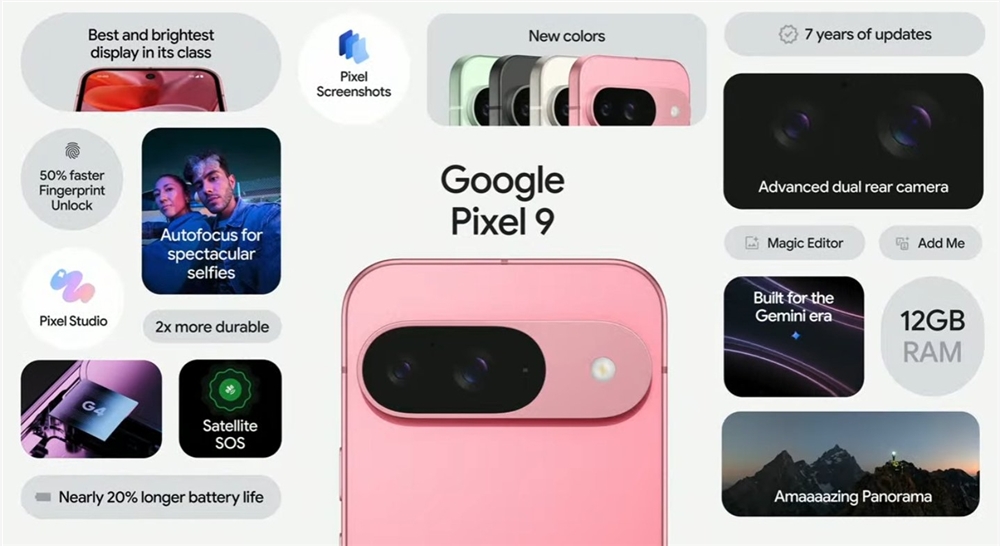Early this morning, Google unveiled the Pixel 9 series of smartphones featuring the AI assistant Gemini. This move signifies Google's full integration of large language model (LLM) artificial intelligence technology into the Android operating system, aiming to enhance user experience and boost device performance.
The Pixel 9 series includes three full-screen models—Pixel 9, Pixel 9 Pro, and Pixel 9 Pro XL, as well as a foldable Pixel 9 Pro Fold. All new devices are equipped with Google's proprietary Tensor G4 chip, with memory starting at 12GB, and the Pro versions reaching 16GB to meet the demands of AI operations. In terms of camera setup, the Pixel 9 series offers a wide-angle lens with up to 50 million pixels and an ultra-wide-angle lens with 48 million pixels. The Pro versions also support 5x optical zoom and 30x ultra-high-resolution digital zoom.

Pricing starts at $799 (approximately RMB 5717) for the Pixel 9, with the Pixel 9 Pro and Pixel 9 Pro XL starting at $999 and $1099, respectively. Google's second foldable smartphone, the Pixel 9 Pro Fold, with its larger internal screen and external display, starts at $1799.
Google's AI assistant Gemini will be deeply integrated into the Android system, offering an overlay feature that allows users to directly ask questions about content on the screen. Sameer Samat, President of the Android Ecosystem, stated that Gemini can understand user intentions, complete complex tasks, and will be expanded to the iOS system in the coming weeks with more language versions.
Additionally, the Pixel 9 series introduces a new satellite SOS feature, enabling users to contact emergency services and share their location via satellite even without cellular network coverage. This feature will initially be available in the United States, with the first two years of use free for Pixel 9 series buyers.








